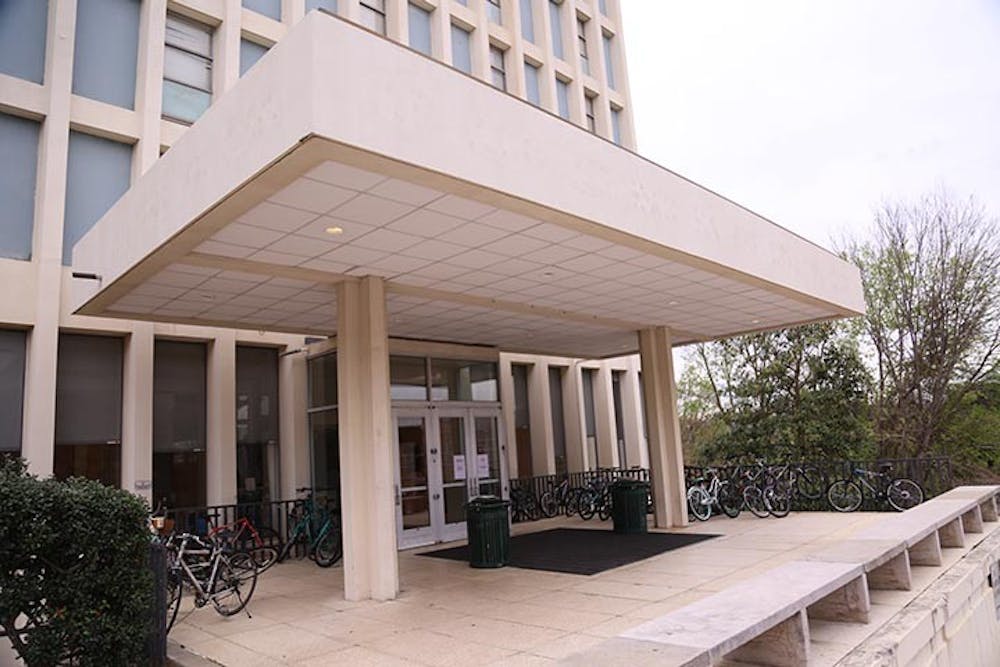Whatever the complete answer is to slowing the spread of COVID-19, closing college residence halls for the next few weeks isn’t it.
USC now follows the trend of closing its housing doors to stop the virus, and at the very least it isn’t doing it for the rest of the year as Harvard, Amherst, University of Virginia or Virginia Tech are. Yet, there’s a key difference here: places such as Harvard hadn’t seen the total chaos and frustration shutting down their residence halls would cause because they were one of the first colleges to do so. USC saw how this affected students across the country and decided to do it anyway. Spring break is already extended. Class is already online until April 6.
What’s the point? It’s understandable to not want thousands of students to be in a housing situation with plenty of communal spaces, especially as they return from spring break.
That leaves the alternative: going home, or trying to avoid going home. The two main gripes are that this can lead to an increased risk of infection for students’ families and put a strain on students to leave campus, either financially, physically or mentally.
CDC guidelines state institutions of higher education should "[e]nsure continuity of safe housing," even if classes are canceled. In the interest of public health, USC must make sure that students have secure places to retreat to in this time of crisis.
Even if the coronavirus reaches USC residence halls, younger people have a far lower chance of being seriously affected, much less dying, from COVID-19. Take, for example, South Korea, which has well over 7,000 cases, where nobody under the age of 30 has died as of March 11. The only real worry would be for those who are immunocompromised, students with immune disorders or who recently recovered from a severe illness that took a toll on their immune system.
Forcing students home who otherwise would not have gone home during or after spring break could expose older members of their families to COVID-19 if their USC student has it, and their family members are far more likely to have severe symptoms and have a greater risk of dying. Why put those older family members at risk?
For residences that do scheduled cleanings from USC staff, that can stop during this time if one of the worries of the university is exposing faculty to the virus in the residence halls. Protect students and faculty but not at the cost of those students’ families.
Furthermore, while there was an extenuating circumstances form for students to stay in their residence halls, there was no explicit list of what constitutes an “extenuating circumstance” or what the cutoff point was. If I can’t afford a plane ticket home, do I have to leave even if that means I have to drive halfway across the country? How poor do I have to be? If my family is abusive, what kind of evidence do I have to list out? How many students will they let stay?
From a study in 2016, 36% of all college students reported to be housing insecure, meaning those students don’t have the income to suddenly change their housing situation, even in a crisis such as a pandemic.
In fact, the largest complaints from colleges such as Harvard have been from students who can’t afford plane tickets home, a place to store their belongings or even just to rent a hotel room until they figure out their situation. One of my childhood friends goes to Virginia Tech with her older brother. Their school evicted everyone from their residence halls for the rest of the year. Her family lives in a much smaller house now because she and her brother haven’t lived at home in years. What happens to their living situation now?
Additionally, some people go to college to escape their families. A 2016 study found that 10% of college students are LGBTQ+, and I personally know people who went to college before their parents could kick them out for being who they are.
Even if there was a form to stay on campus, what if you didn’t want to disclose to your college that you’re gay or transgender or that your family is abusive?
Closing residence halls and making students return isn’t an extended vacation for most people: It’s chaos. It’s disappointment. It’s fear. There should’ve been another solution to keep students safe.

